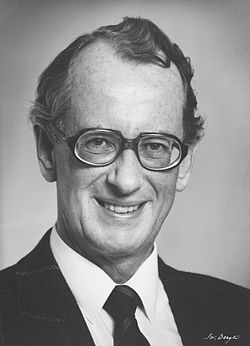Syse's Cabinet | |
|---|---|
| Cabinet of Norway | |
 | |
| Date formed | 16 October 1989 |
| Date dissolved | 3 November 1990 |
| People and organisations | |
| Head of state | Olav V of Norway |
| Head of government | Jan Peder Syse |
| Total no. of members | 19 |
| Member party | Conservative Party Centre Party Christian Democratic Party |
| Status in legislature | Coalition minority government |
| Opposition party | Labour |
| History | |
| Election | 1989 parliamentary election |
| Predecessor | Brundtland's Second Cabinet |
| Successor | Brundtland's Third Cabinet |
Syse's Cabinet was a minority centre-right Conservative, Centre, Christian Democrat Government of Norway. It succeeded the Labour Second cabinet Brundtland after the 1989 election, and sat between 16 October 1989 and 3 November 1990. It was replaced by the Labour Third cabinet Brundtland after Centre left the coalition due to disagreement over possible Norwegian membership in the European Economic Area. This disagreement was anticipated as the cabinet operated with a suicide paragraph from the beginning. [1] Syse's cabinet had the following composition: [2]